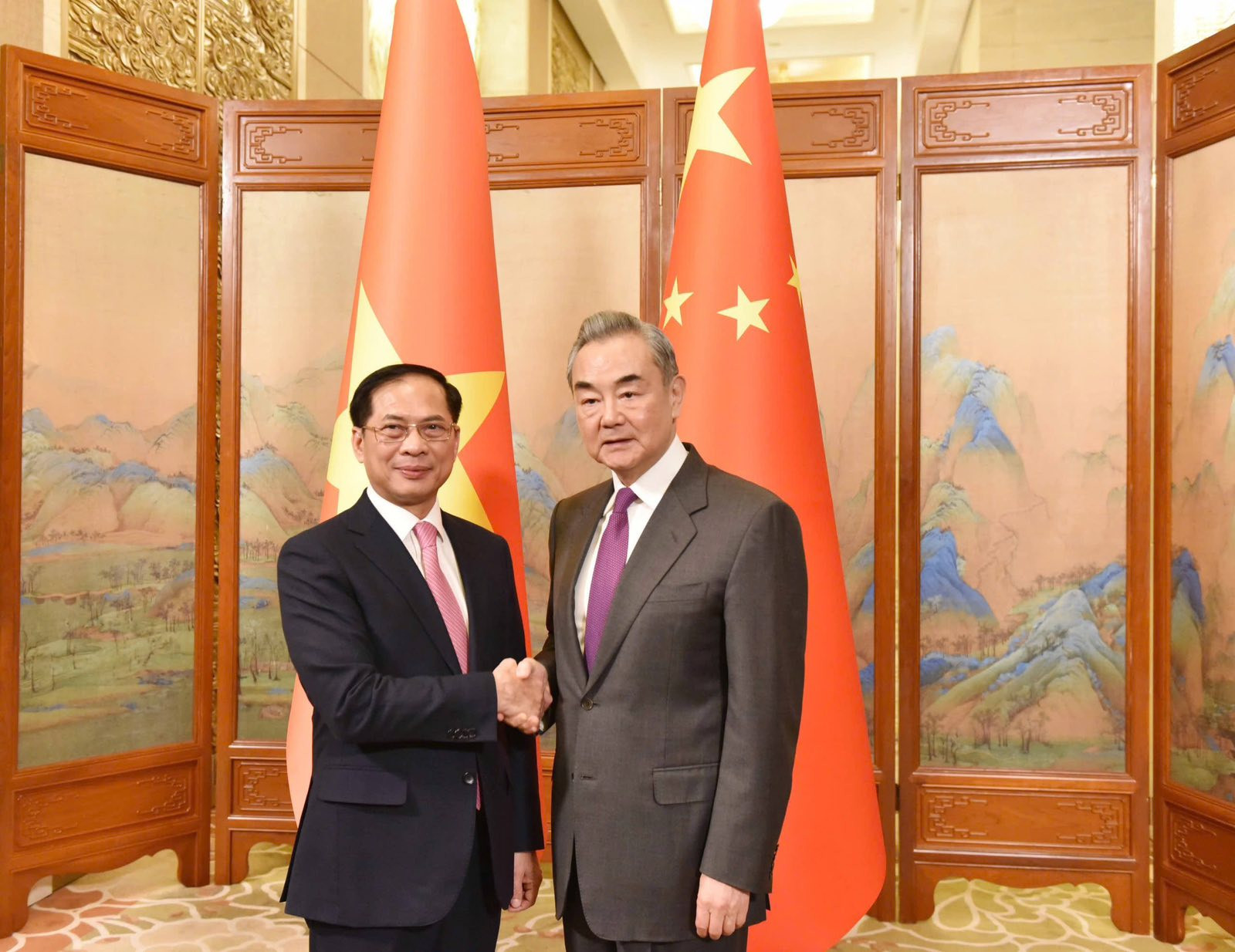Vietnam and China have formalized an agreement to cooperate on the construction of three standard-gauge railway lines: Lao Cai–Hanoi–Hai Phong, Lang Son–Hanoi, and Mong Cai–Ha Long–Hai Phong.
The agreement was reached on December 10 during the 16th session of the Vietnam-China Bilateral Cooperation Steering Committee, co-chaired by Vietnamese Deputy Prime Minister and Minister of Foreign Affairs Bui Thanh Son and Chinese State Councilor and Foreign Minister Wang Yi at Diaoyutai State Guesthouse in Beijing.

The two sides exchanged views and agreed on measures to implement shared commitments made by top leaders of both nations. These steps aim to elevate the bilateral relationship to a new phase of more effective and substantive development.
Deputy Prime Minister Bui Thanh Son reiterated Vietnam’s consistent policy of fostering a stable, healthy, and sustainable relationship with China. He emphasized that this is a strategic priority in Vietnam’s independent and multilateral foreign policy.
Son urged expedited progress on railway connectivity, prioritizing the three agreed-upon standard-gauge railway projects. He also proposed restoring international rail freight services between the two countries and improving flight slots for Vietnamese airlines.
Additionally, Son called for the safe operation of the Ban Gioc–Detian Waterfall landscape area, greater market access for high-quality Vietnamese agricultural products, and permission for Vietnam to open more trade promotion offices in China.
Foreign Minister Wang Yi affirmed China’s commitment to mutually beneficial cooperation, including increasing imports of high-quality Vietnamese goods and resolving issues with existing Chinese investment projects in Vietnam. He encouraged Chinese businesses to invest in Vietnam, particularly in advanced, large-scale projects.
Both sides discussed enhancing strategic connectivity, stabilizing supply chains, and strengthening their comprehensive strategic cooperative partnership.
Addressing maritime issues, the two sides agreed to adhere to high-level consensus, effectively manage disputes, and maintain peace and stability in the East Sea. Deputy Prime Minister Son emphasized respect for international law, including sovereignty and legitimate interests, as the foundation for resolving maritime disputes.
The agreement between the two governments to cooperate on the Lao Cai–Hanoi–Hai Phong, Lang Son–Hanoi, and Mong Cai–Ha Long–Hai Phong railway projects is seen as a major step forward in infrastructure development. These projects are expected to improve regional connectivity and boost economic growth.
During the same visit, Deputy Prime Minister Son met with Chinese Vice President Han Zheng. Han highlighted the strategic significance of Vietnam-China relations and their shared future vision, emphasizing China’s prioritization of its partnership with Vietnam.
Deputy Prime Minister Son proposed expanding imports of Vietnamese goods and promoting high-quality Chinese investment in Vietnam. He also emphasized the importance of jointly commemorating the 75th anniversary of diplomatic relations in 2025 and fostering cultural exchanges.
Vice President Han affirmed China’s support for Vietnam’s 14th National Party Congress and its APEC 2027 hosting efforts. He also stressed the importance of deepening cooperation in tourism, education, and trade to achieve new milestones in the bilateral relationship.
Tran Thuong